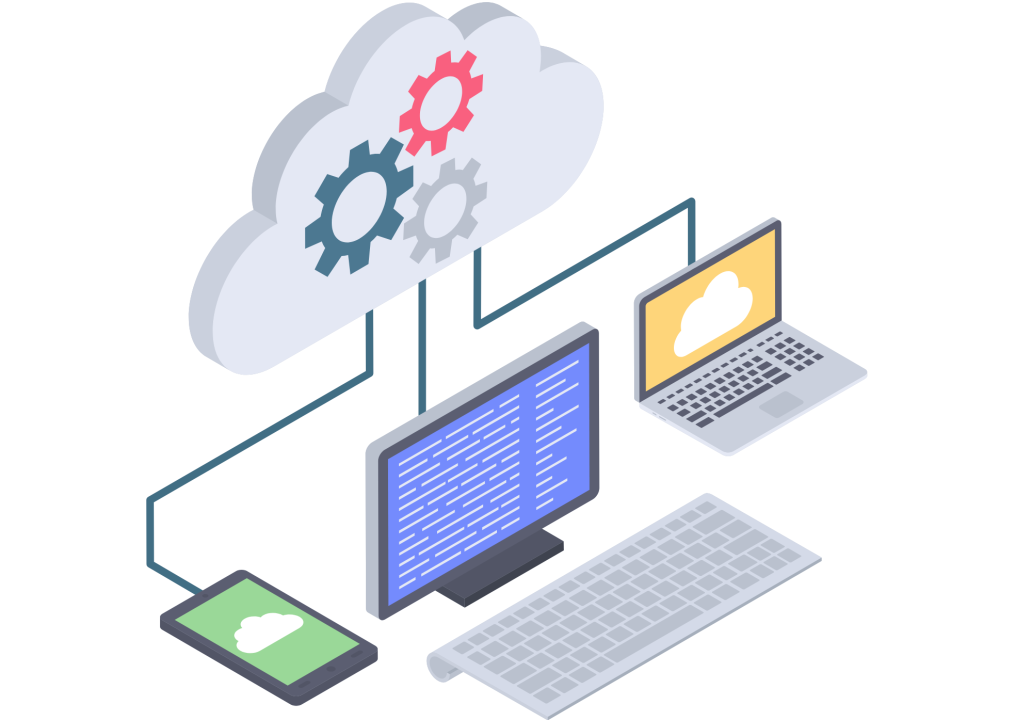Unleashing the Power of Cloud Computing: A Path to a Thriving Tech Career
In today’s rapidly evolving digital landscape, cloud computing has emerged as a transformative force that is reshaping the way we think about technology infrastructure and services. This comprehensive article explores the world of cloud computing, delving into its fundamental concepts, applications, and its significance in various careers, including full stack development, senior software engineering, cloud engineering, Java development, and software architecture.
Understanding Cloud Computing
What is Cloud Computing?
At its core, cloud computing is a technology that delivers a wide array of computing services over the Internet, often referred to as “the cloud.” These services encompass data storage, networking, web servers, database management systems, marketing automation, and business analytics, among others. Instead of relying on local servers or personal computers, cloud computing allows individuals and organizations to access and utilize these resources remotely, on-demand.
Key Concepts in Cloud Computing
To grasp the essence of cloud computing, let’s break down some key concepts:
- Service Models:
- Infrastructure as a Service (IaaS): Provides virtualized computing resources over the internet, such as virtual machines, storage, and networking.
- Platform as a Service (PaaS): Offers a platform where developers can build, deploy, and manage applications without worrying about the underlying infrastructure.
- Software as a Service (SaaS): Delivers software applications via the cloud, eliminating the need for local installations.
- Deployment Models:
- Public Cloud: Services are provided by third-party cloud service providers and are accessible to the public over the internet.
- Private Cloud: Resources are dedicated to a single organization, providing more control and security.
- Hybrid Cloud: Combines elements of both public and private clouds, allowing data and applications to move between them.
Ethics in Business: Navigating the Moral Compass of Commerce
Applications of Cloud Computing
1. Data Storage and Backup:
- Cloud storage solutions like Amazon S3, Google Cloud Storage, and Microsoft Azure Blob Storage offer scalable and reliable data storage options for individuals and businesses.
2. Web Servers and Hosting:
- Cloud-based web hosting platforms like AWS, Azure, and Heroku provide the infrastructure needed to host websites and web applications.
3. Database Management Systems:
- Cloud databases such as Amazon RDS and Google Cloud SQL simplify database management and offer scalability and redundancy.
4. Marketing Automation:
- Marketing teams leverage cloud-based tools like HubSpot and Salesforce Marketing Cloud for automating marketing campaigns and analyzing customer data.
5. Business Analytics:
- Cloud analytics platforms, like Google Analytics and Tableau Online, enable organizations to analyze and gain insights from their data.
Cloud Computing in Various Careers
1. Full Stack Developer:
- Full stack developers benefit from cloud computing by deploying their applications easily and scaling resources as needed. They often utilize PaaS and IaaS to streamline their development process.
2. Senior Software Engineer:
- Senior software engineers leverage cloud services to build robust and scalable software systems. They are responsible for making informed decisions about choosing the right cloud resources for their projects.
3. Cloud Engineer:
- Cloud engineers specialize in designing, implementing, and managing cloud infrastructure. They play a pivotal role in ensuring the reliability and security of cloud-based services.
4. Java Developer:
- Java developers can utilize cloud platforms to deploy and run Java applications with ease. They often integrate cloud-based services to enhance the functionality of their applications.
5. Software Architect:
- Software architects design complex systems that often rely on cloud computing for scalability and reliability. They must make high-level decisions regarding the integration of cloud services into their architecture.
In conclusion, cloud computing has revolutionized the way we approach technology. Its versatility, scalability, and accessibility have made it an indispensable tool for a wide range of applications and industries. As technology continues to advance, cloud computing will undoubtedly play a pivotal role in shaping our digital future. Whether you’re a full stack developer, senior software engineer, cloud engineer, Java developer, or software architect, proficiency in cloud computing is a valuable asset that can open up a world of opportunities in the ever-evolving tech landscape. Stay tuned for more updates on the exciting world of cloud computing!

